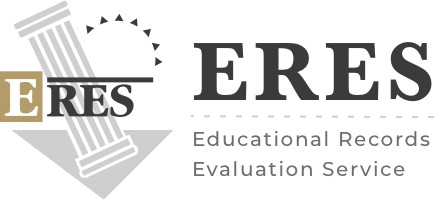Blog
3 H-1B Circumstances that Require a Credential Evaluation

The H-1B visa program is a temporary visa category in the United States that allows U.S. employers to hire non-immigrants in specialized occupations temporarily. The program allows these employers to access the skills and expertise of foreign professionals when they cannot find suitable domestic candidates for specific roles.
However, obtaining an H-1B visa involves several intricacies, including the requirement for a credential evaluation under certain circumstances.
What is Education Evaluation for H1B?
Education evaluation for the H-1B visa application process involves the comprehensive assessment of a foreign worker's educational qualifications to determine their equivalence to the U.S. educational system. This evaluation is a crucial component of the visa application, enabling U.S. Citizenship and Immigration Services (USCIS) adjudicators to determine whether the foreign worker meets the educational requirements necessary for a specialized occupation.
The H-1B program mandates that foreign workers possess at least a bachelor's degree or equivalent to qualify for positions requiring specialized skills and expertise. However, due to the diversity of educational systems worldwide, it becomes essential to standardize and translate foreign educational credentials into terms that USCIS can readily understand and evaluate. This is where education evaluation comes into play.
In the context of H-1B visa applications, a Request for Evidence (RFE) is issued by the U.S. Citizenship and Immigration Services (USCIS) when additional documentation or clarification is required to decide on the application. Credential evaluations can be requested in various circumstances to address specific concerns or gaps in the submitted documentation.
Here are three H-1B RFE circumstances that may require a credential evaluation:
Foreign Degree Equivalency RFE
An RFE related to foreign degree equivalency often arises when the educational credentials submitted by the H-1B applicant are from a non-U.S. institution. USCIS may issue this type of RFE if there are doubts about the level, field of study, or comparability of the foreign degree to a U.S. bachelor’s degree. In such cases, a credential evaluation becomes necessary to establish the equivalence of the foreign degree.
The evaluation process involves a detailed analysis of the foreign educational credentials and compares them to U.S. educational standards. The credential evaluation agency assesses factors, such as the institution’s accreditation, program of study, curriculum, and academic rigor. The resulting evaluation report provides USCIS with a clear understanding of how the foreign degree aligns with U.S. educational norms, helping to address the RFE.
Mismatched Education-Occupation RFE
Another common circumstance leading to an RFE involves a potential mismatch between the applicant’s educational background and the specialized occupation for which they are seeking H-1B status. If the applicant’s degree field is not directly related to the job’s requirements, an RFE might be issued to seek clarification on how the education is relevant to the occupation.
In response, a credential evaluation can demonstrate how the applicant’s education, though seemingly unrelated, provides the necessary skills and knowledge to excel in the specialized role. The evaluation report highlights transferable skills, relevant coursework, and practical experience that bridge the gap between the applicant’s education and the job’s demands, thereby addressing the RFE.
Work Experience Equivalency RFE
In cases where the H-1B applicant lacks a formal bachelor’s degree but possesses substantial work experience, an RFE might be triggered to determine if the work experience can be considered equivalent to a degree. USCIS may question whether the experience adequately covers the educational requirement for the specialized occupation.
To address this RFE, a credential evaluation for employment that assesses the applicant’s work experience can be crucial. The evaluation involves reviewing the applicant’s employment history, responsibilities, projects, and accomplishments. The goal is to establish the comparability of the work experience to a U.S. bachelor’s degree and demonstrate that the applicant’s practical expertise is equivalent to formal education in the field.
How to Get My Education Credential Evaluation for H1B RFE?
Let us take a look at how to get an education evaluation for H1b:
- Select the Best Foreign Transcript Evaluation Service: Research and choose a reputable and experienced credential evaluation agency. Look for agencies recognized by the National Association of Credential Evaluation Services or the Association of International Credential Evaluators to ensure high evaluation standards. Choosing the best foreign transcript evaluation service can significantly impact the accuracy and acceptance of your evaluation report.
- Submit Required Documents: Provide the chosen agency with copies of your educational documents, including transcripts, degree certificates, and relevant professional certifications. Some agencies may require additional documents, such as course syllabi.
- Choose the Right Evaluation Type: Work with the agency to determine the appropriate evaluation type based on your educational background and the requirements of the H-1B visa. Common evaluation types include course-by-course, document, and work experience evaluations.
- Undergo the Evaluation Process: The agency's evaluators will thoroughly review your educational documents. They will compare your foreign education to U.S. educational standards and produce a detailed report outlining the equivalency of your credentials.
- Receive the Evaluation Report: Once complete, you will receive an evaluation report that includes information about your educational background, equivalency determination, and relevant notes or explanations.
- Include Evaluation in H-1B Application: Include the education evaluation report in your H-1B visa application package. The evaluation report helps USCIS adjudicators understand the equivalency of your foreign degree and its relevance to the specialized occupation you're seeking.
- Consult an Immigration Attorney: If you're unsure about the specific requirements for education evaluation in your H-1B case, it's advisable to seek guidance from an experienced immigration attorney. They can provide insights and ensure that your evaluation meets the necessary criteria.
So, How to Get an Education Evaluation for H1b?
Education evaluation for H-1B visas is a crucial process that facilitates the assessment of foreign educational qualifications within the United States. By understanding the importance of education evaluation, selecting the best foreign transcript evaluation service, and following the steps outlined above, foreign workers can enhance their chances of successfully demonstrating the equivalency of their education and qualifications for the specialized occupations covered by the H-1B program. If you need help getting a credential evaluation, don’t hesitate to contact Educational Records Evaluation Service today.
Start Now
ERES
Educational Records Evaluation Service helps Non-US educated individuals to receive their US equivalences with our credential evaluation reports.
Services
Contact us
Tue - Fri: 10:00 to 16:00 ( PST )
4773 Mangels Blvd, Fairfield, CA 94534, USA.
© 2025 Educational Records Evaluation Service. All rights reserved.











